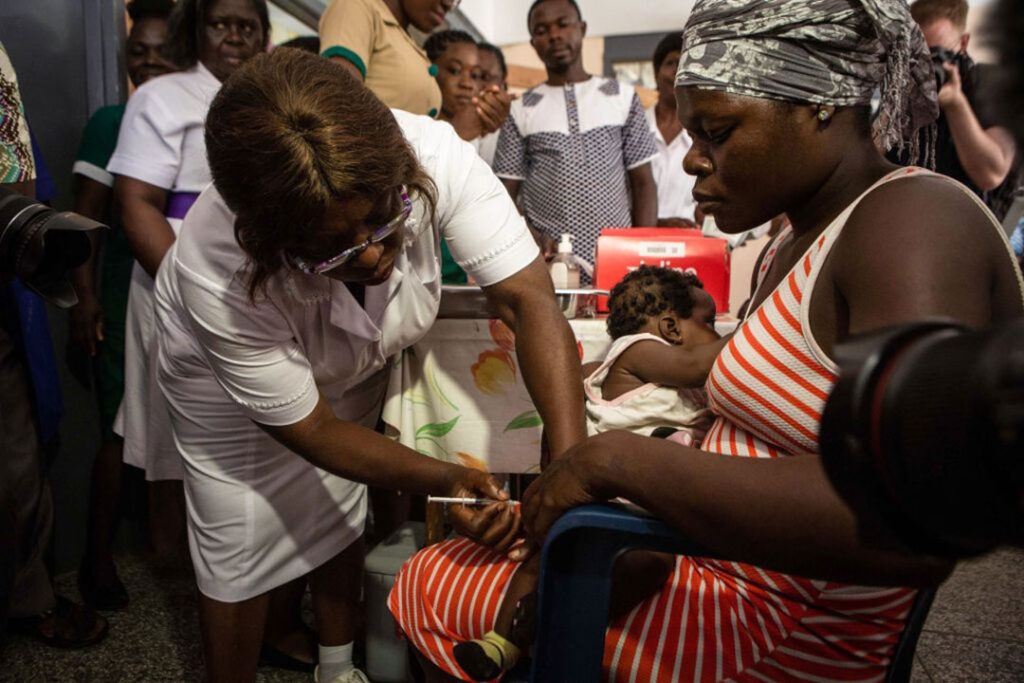ADF STAFF
When it comes to testing people for COVID-19, speedy results have become a key element in preventing the spread of the disease. In Ghana, that means samples frequently take to the air.
Since 2019, the medical delivery service Zipline International has operated a fleet of autonomous drones to move laboratory samples, blood packets for transfusion, and other medical supplies to distant corners of the country quickly and at a low cost.
With four distribution centers across the country, Zipline reaches more than 950 medical facilities in many of Ghana’s rural communities representing 30% to 40% of the country, according to Kwasi Antwi, a pharmacist and health care systems integrator for Zipline. A drive that takes hours on poorly maintained roads now takes minutes by air.
Zipline’s network is helping medical researchers collect COVID-19 samples and transport them quickly to laboratories at the Kumasi Center for Collaborative Research and the Noguchi Memorial Institute for Medical Research. As of the end of August, Zipline had made 517 COVID-19 flights and delivered more than 3,000 samples to research centers.
The company also delivers personal protective equipment (PPE) such as gloves, masks and hand sanitizer from a distribution center in Vobsi to locations where it’s needed in northeast Ghana, Antwi said.
Zipline’s contract with the Ghanaian government allows up to 150 deliveries per day per distribution center for four years.
Dr. Frederick Kwame Ofosu, director of health services for the Suhum community near Omenako, told Ghana’s Graphic Online that his community used to spend 200 Ghana cedis (about $35) to deliver a single sample to the Noguchi institute 90 minutes away in Accra.
“By the coming of Zipline, however, the municipality has not spent any money on transporting COVID-19 samples to Noguchi,” Ofosu said. “This has been a huge relief to the municipality in terms of cost and speed of transporting these samples to Noguchi.”
Each Zipline facility is part medical warehouse and part drone airport, covering a service area up to 22,500 square kilometers. Staff members receive orders electronically, then fill them and launch them on their way in a matter of minutes. Ghana’s first Zipline launch in 2019 carried yellow fever vaccines to ensure that Kusami’s Tafo Hospital did not run out.
Zipline’s drones carry small payloads up to 1.6 kilograms up to 80 kilometers on a route programmed using 3D mapping and GPS. When the drone reaches its destination, its payload doors open, and a disposable parachute carries the material to earth as the drone returns to base.
Zipline, a San Francisco-based company, launched its African operations in Rwanda in 2016. Aside from carrying COVID-19 samples, vaccines and PPE, Zipline’s drones also can deliver blood and other materials as health care workers need them, such as in during a difficult birth in a rural area.
Dr. Seth Berkley, CEO of Gavi, the Vaccine Alliance, which operates in 40 African countries, sees drone technology like Zipline as crucial to bringing health care to hard-to-reach communities.
“But also, drones have the advantage of being just in time, and this is very important for products where you cannot predict where the need is,” Berkley told Nigeria’s Channels Television.

